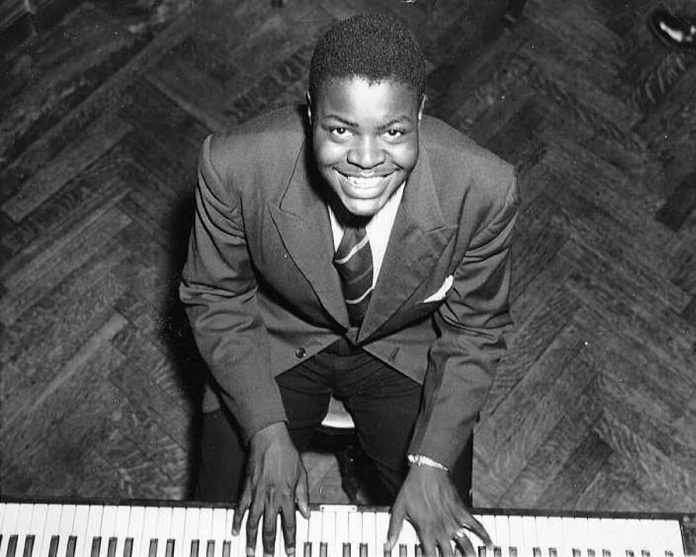“Jazz piano” is no more of a self-contained notion than is “Jazz saxophone”. After all, the music can be played on any instrument, although there will of course always be those who (understandably in some cases) will hold out against the likes of the ukelele, the kazoo, and the venerable efforts of Red McKenzie.
In view of this, it’s not as though there’s anything that needs to be specifically “got” about jazz piano playing; to employ a turn of phrase that’s rapidly become a cliché, it is what it is, and it can be undemanding or demanding, trying or mood enhancing, depending on too many variables to be properly discussed here.
Still, I spent decades of my adult life not getting it. Specifically in terms of the piano, bass, drums trio, it was simply there, an instrumental line-up that for me guaranteed only slight returns, positive or otherwise. This indifference might have been down to early exposure to Oscar Peterson on BBC Two, a notion which these days seems to come from another world, or BBC Four, such are the cultural changes and emaciations that have taken toll in the last half century, and certainly the memory of his ringed fingers has lasted longer than the memory of whatever he was playing.
But then as far as I can hear, even now, in Peterson’s work there’s little in the way of those joyful eureka moments that the diligent recording of his mentor Art Tatum has captured for the ages. If Peterson’s work in any way embodies “correct” virtuosity, then the work of Herbie Nichols exemplifies something else, and not simply the practical application of a composerly outlook that was never part of Peterson’s musical make-up. In his short, frustrating career Nichols got to work with drummers of the calibre of Art Blakey and Max Roach, and this was nothing less than he and his compositions deserved, not least because the rhythmic values of his compositions demanded a distinctive virtuosity all their own.
But time’s passing brings changes well outside of cultural attitudes, and (very) approximately about two years ago I “got” Bill Evans, who’d taken his time, or maybe I had without even realising it. What before had sounded like so little, now sounds like so much, although the pianist Fred Hersch very perceptively highlights how the simplicity of an Evans trio can be quite at odds with present-day notions of perfection and other dubious edicts (1). With Evans the piano, bass, drums trio – regardless to a large extent of who’s playing the latter two – has for me become an example of that line-up restriction being the mother of invention, thanks in no small part to the fertility of imagination that’s a key element of the trio’s collective work.
Though for me that love has grown, the notion of the exemplar is surely a mercurial one in musical terms, as much an excuse for inter-tribal conflict as anything else, and musicians, just as much as the audience (or lack of it) for their work are surely as suspicious of it as any artist. That said, influencers existed long before they were a “phenomenon” of social media, though not in terms of persuading others to follow patterns of behaviour or buy endorsed products, and while the Evans influence might have been pervasive, it was so in tandem with the influences of others who took a rather different approach to the keyboard itself. What united those diverse influences was the method of schooling, which happened in the moments, and made them resound.
Resounding, however, isn’t reliant on the unprecedented, and a consequence of this is that the cornerstone of the established repertoire that is standards can be rendered afresh, as both Nichols, with his interpretation of Too Close For Comfort and Paul Bley with his of Lover Man show. In his rhythmic obliqueness Nichols reveals his musical personality, as does Bley with his surface consideration and his right hand’s ability to make the keys “sing” in a way all his own despite the faint echoes of Evans, a pianist towards whose work Bley was more than a little antagonistic (2).
The making of points, rather like point scoring, is, however, ultimately self-defeating, not least because they can be so easily made. Improvisation can after all be a fraught process, and even an instrument that offers a choice of 88 keys can be degraded by condition, atmosphere and the like, as pianists since time immemorial have found.
Notes
(1) Booklet notes for a reissue of Trio 64 (CD, Verve 539 058-2)
(2) Time Will Tell, Conversations With Paul Bley by Norman Meehan. Berkeley Hills Books
















